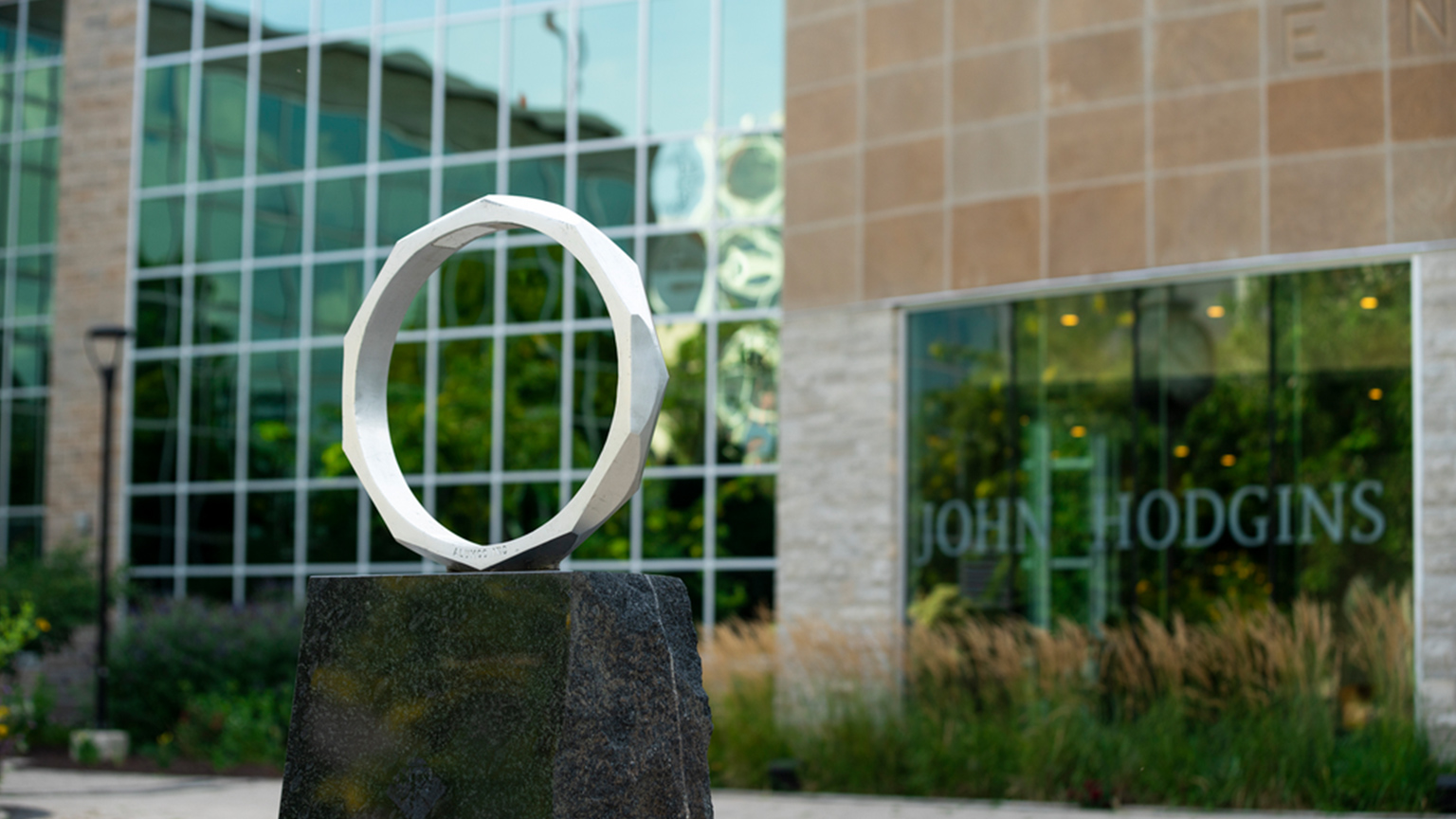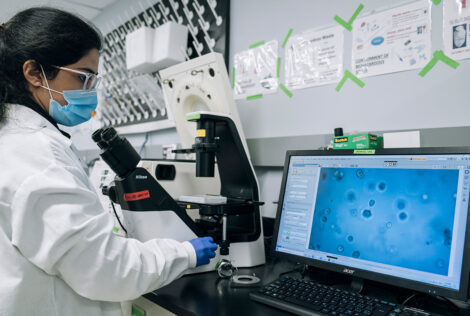

Drew Higgins, assistant professor of chemical engineering, is a co-investigator in the newly launched Alliance for AI-Accelerated Materials Discovery in partnership with the University of Toronto, the National Research Council Canada, LG and TOTAL.
McMaster University joins the University of Toronto and the National Research Council Canada (NRC) in a new consortium which will use artificial intelligence (AI) to discover the next generation of high-performance materials.
The Alliance for AI-Accelerated Materials Discovery (A3MD) aims to support a suite of projects to accelerate the materials discovery process in Canada, with applications from renewable energy to smartphones.
“Materials discovery can be a time-consuming and expensive process – but with AI and robotic experimentation, the potential to discover new materials more efficiently is huge,” says Drew Higgins, a co-investigator of the new consortium and an assistant professor of chemical engineering at McMaster University.
In partnership with industrial partners LG and TOTAL, one of the team’s priorities will be to develop and implement techniques to better understand how materials work under realistic operating conditions, also referred to as high-throughput operando characterization of materials.
In part, the activities will leverage the advanced materials characterization facilities available at the Canadian Centre for Electron Microscopy at McMaster.
“The knowledge collected using this operando approach will be crucial in accelerating the process of translating new material designs from concept to application,” Higgins says.
The A3MD co-investigators are:
- Ted Sargent (Principal Investigator, Electrical & Computer Engineering, U of T)
- Alan Aspuru-Guzik (Chemistry, Computer Science, U of T)
- Cathy Chin (Chemical Engineering, U of T)
- Drew Higgins (Chemical Engineering, McMaster University)
- David Sinton (Mechanical and Industrial Engineering, U of T)
- Isaac Tamblyn (National Research Council of Canada)
- Alex Voznyy (Physical and Environmental Sciences, UTSC)
“It is a great privilege for the Faculty of Engineering to be part of the Alliance for AI-Accelerated Materials Discovery that brings together world leaders in AI, materials science and robotics to discover new materials and improve their performance for commercial use,” says Ishwar K. Puri, Dean of Engineering.
In its first year, A3MD will put in place the infrastructure needed for high-throughput experimentation, including precision robotics. The team will also launch machine learning and data science bootcamps to engage a new generation of experts, including graduate students and post-doctoral fellows.
In its second year, A3MD will expand its group of industry and academic partners who bring additional expertise and offer new avenues to commercialize newly developed technologies.


